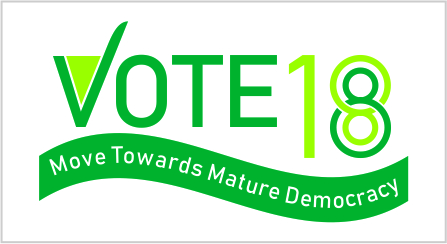Pakistan is on the path to renew its democratic soul and spirit on July 25, 2018 when the nation of 207 million strong will go to 11th General Elections for the 272 seats of the national and 577 seats of the four provincial assemblies. If we cross the bridge it will be the second civilian to civilian transition in 71-year old country.
105.95 million i.e. fifty one percent of the country’s population isvoter.They will be electing 272 members of the National Assembly and 577 members of the four provincial assemblies at 85,000 polling stations. The remaining 70 seats (60-women and 10 non-Muslims seats) of 342-member National Assembly are reserved and are distributed on the basis of seats won by the political parties in the General Election.
After completion of the due process envisaged in the Election Act-2017, the Election Commission of Pakistan (ECP) has made public the statistics of, now capped, Electoral Rolls to be used for Election-2018. Out of the 105.95 million voters eligible to exercise their vote59.22m (56 percent) are male and 46.73m (44 percent) are females, with the gender gap between male and female standing at 12 percent.

The number of registered voters in 2018 is 23 percent higher than the86.19m voters in 2013. The highest number of voters reside in the populous Punjab with a total of 60.67m voters (23pc increase from 2013), of which 33.67m are male and 26.99m are female. Next is Sindh with 22.39m registered voters (18pc in
crease over 2013). Out of these 12.44m are male and 9.95m are female.
Khyber Pakhtunkhwa, the third largest province of the country, is home to 15.32m registered voters (25pc higher than 2013) including 8.71m male and 6.61m female voters. Balochistan has a total of 4.3m registered voters — 29pc more than 2013 — including 2.49m male and 1.81m female voters.
The Federally Administered Tribal Areas (Fata) now merged with the Khyber Pakhtunkhwa, has 2.51m voters out of which 1.5 are male and one million female. The Federal capital Islamabad has 765,348 voters.
Although the ECP has yet to make public age-wise and faith-wise details of the Electoral Rolls, CitizensWire has learnt that the number of voters in 2018 belonging to religious minorities in the country has climbed to 3.63 million from 2.77m registered in electoral rolls for the 2013 general elections-registering an increase of 0.860m or 30 per cent in five years.



